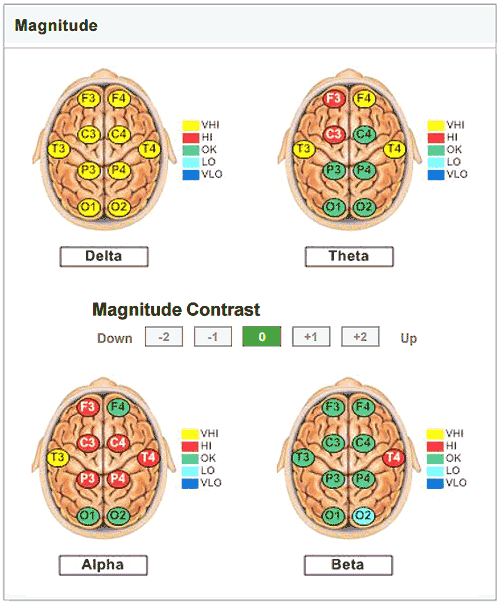Discover The Clear Mind Neurofeedback System
Neurofeedback is not a new fad or the “latest thing.” It has been around since the 1960s and has over 50 years of research and case studies to prove its effectiveness.

What is Neurofeedback?
Neurofeedback literally means “brain” and “input,” where the brain is monitored, and input is given instantly. Neurofeedback specifically monitors brainwaves, looks for irregularities, then produces a signal that is designed to correct the irregularity and guide the brainwave back into a healthy pattern. With repetition of this process over time, the brain will learn to stay in healthy ranges without the aid of the computer. The result is an improvement in brain regulation, which in turn can reduce or eliminate most neurological symptoms.
What Type of Input is Used?
The signal source varies based on the system used, but it usually involves audio or video of the patient’s choosing. The process is so easy, a patient can actually get better just by listening to their favorite music or watching their favorite videos. The process is non-invasive, requires no drugs, and is pain-free.
Who Can Benefit?
Neurofeedback can work on anyone, no matter the age. All that is required is the ability to focus on the audio or video stimulation. Any neurological condition that involves irregular brainwaves can be targeted and improved with neurofeedback. These conditions include:
- ADD
- ADHD
- Addiction
- Anger Management
- Anxiety
- Autism
- Bipolar Disorder
- Brain Injury
- Chronic Pain
- Depression
- Dyslexia
- Epilepsy / Seizures
- Fibromyalgia
- Insomnia
- Lyme Disease
- Memory Loss
- Migraines
- OCD
- Tourette's
- Parkinson's
- Stress
- PTSD
- Schizophrenia
- Sleep Disorders
- Stroke
- Substance Abuse
- Alzheimer's Disease
What are Brainwaves? How Do They Affect Me?
Neurofeedback targets the four primary brainwaves (Alpha, Beta, Delta, Theta). Each of these brainwaves is responsible for regulating the active and subconscious aspects of your body. Take a look at the diagram below:

Delta Brainwave
Sleepy, Dreaming

Theta Brainwave
Drowsy, Meditative

Alpha Brainwave
Relaxed, Reflective

Beta Brainwave
Alert, Working
Delta brainwaves are associated with deep, dreamless sleep and regeneration. Delta brainwaves occur when you are asleep and are responsible for healing the body.
Theta brainwaves are associated with light sleep or extreme relaxation. When your subconscious takes over you start producing Theta brainwaves.
Alpha brainwaves occur when you are awake but relaxed and not processing much information. When you first get up and right before you fall asleep, you are generating Alpha waves, as well as when you close your eyes to rest.
Beta brainwaves are associated with the mental state most people are in during the day and most of their waking lives. When you are alert and focused, you are producing Beta brainwaves.
While each of these brainwaves is responsive for different body functions, they all are equally important to your health and well-being. Researchers have known for decades the correlation between Irregular brainwaves and common neurological conditions. Neurofeedback is the first field to directly target these irregular brainwaves and restore them to normal ranges.
Today’s modern medicine is focused on using medications to treat most conditions. Neurofeedback is an alternative to this approach, and as such, it takes time for new ideas and methods to be widely accepted. But neurofeedback is experiencing a large growth cycle right now, and that should only increase as science further determines its effectiveness.
Neurofeedback is non-invasive, meaning it does not require any surgery or procedures. No drugs are needed to accompany the process either. And the process is fast, only requiring 30 minutes per session. Some patients will see improvement immediately.
Neurofeedback has been around for over five decades. To date, there are thousands of studies, with more being published every day.
